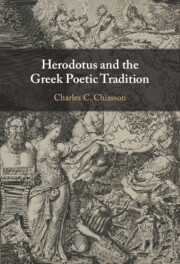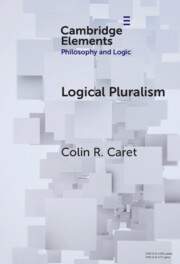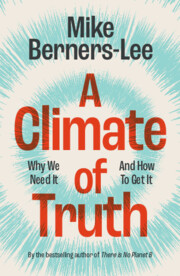Refine search
Actions for selected content:
235 results
Chapter 28 - The Foundation of the Principle of Non-contradiction in Syrianus
- from Part V - Metaphysics
-
- Book:
- The Ladder of the Sciences in Late Antique Platonism
- Print publication:
- 08 January 2026, pp 370-377
-
- Chapter
- Export citation
Afterword
-
- Book:
- Emerson, the Philosopher of Oppositions
- Published online:
- 20 November 2025
- Print publication:
- 31 December 2025, pp 198-200
-
- Chapter
- Export citation
Conclusion
-
- Book:
- Huguenot Networks
- Published online:
- 28 November 2025
- Print publication:
- 18 December 2025, pp 204-206
-
- Chapter
- Export citation
Chapter 4 - Confessional Connections
-
- Book:
- Huguenot Networks
- Published online:
- 28 November 2025
- Print publication:
- 18 December 2025, pp 118-151
-
- Chapter
- Export citation
Chapter 6 - Truth and Lies, Secrets and Spies
-
- Book:
- Huguenot Networks
- Published online:
- 28 November 2025
- Print publication:
- 18 December 2025, pp 176-203
-
- Chapter
- Export citation

Huguenot Networks
- Truth and Secrecy in Sixteenth-Century Europe
-
- Published online:
- 28 November 2025
- Print publication:
- 18 December 2025

Moral Autopsy
- Truths, Secrets, and the Judicial Afterlives of Communist Secret Service Archives
-
- Published online:
- 18 November 2025
- Print publication:
- 30 October 2025
2 - Translation
- from Part I - Introduction and Translation
-
- Book:
- The Gospel of Truth
- Published online:
- 23 October 2025
- Print publication:
- 06 November 2025, pp 20-42
-
- Chapter
- Export citation
Introduction
-
- Book:
- Herodotus and the Greek Poetic Tradition
- Published online:
- 04 November 2025
- Print publication:
- 06 November 2025, pp 1-10
-
- Chapter
- Export citation

Herodotus and the Greek Poetic Tradition
-
- Published online:
- 04 November 2025
- Print publication:
- 06 November 2025
Conclusion - Of Truth and Political Responsibility
-
- Book:
- Moral Autopsy
- Published online:
- 18 November 2025
- Print publication:
- 30 October 2025, pp 238-264
-
- Chapter
- Export citation

Logical Pluralism
-
- Published online:
- 30 September 2025
- Print publication:
- 23 October 2025
-
- Element
- Export citation
SATISFACTION IS NOT ABSOLUTE
- Part of
-
- Journal:
- The Review of Symbolic Logic , First View
- Published online by Cambridge University Press:
- 23 September 2025, pp. 1-28
-
- Article
-
- You have access
- Open access
- HTML
- Export citation
Chapter 12 - Ockham on the Liar Paradox
-
-
- Book:
- Ockham’s <i>Summa Logicae</i>
- Published online:
- 04 September 2025
- Print publication:
- 18 September 2025, pp 252-268
-
- Chapter
- Export citation
Chapter VI - A Right to the Truth in Another?
-
- Book:
- Kant and the Supposed Right to Lie
- Published online:
- 18 July 2025
- Print publication:
- 28 August 2025, pp 98-106
-
- Chapter
- Export citation
Chapter 6 - Truth and Truthfulness
- from Part II - Virtues of Direct Caring
-
- Book:
- Attention to Virtues
- Published online:
- 25 July 2025
- Print publication:
- 14 August 2025, pp 120-140
-
- Chapter
- Export citation
Chapter 7 - Authenticity, Truth, and Cultural Transformation
-
-
- Book:
- Heidegger's <i>Being and Time</i>
- Published online:
- 28 June 2025
- Print publication:
- 26 June 2025, pp 125-157
-
- Chapter
- Export citation
Chapter 7 - The Fourth Way
-
- Book:
- Reading Aquinas's Five Ways
- Published online:
- 05 June 2025
- Print publication:
- 19 June 2025, pp 155-187
-
- Chapter
- Export citation

A Climate of Truth
- Why We Need It and How To Get It
-
- Published online:
- 27 March 2025
- Print publication:
- 27 March 2025
1 - The Challenge Ahead
-
- Book:
- A Climate of Truth
- Published online:
- 27 March 2025
- Print publication:
- 27 March 2025, pp 14-20
-
- Chapter
- Export citation







